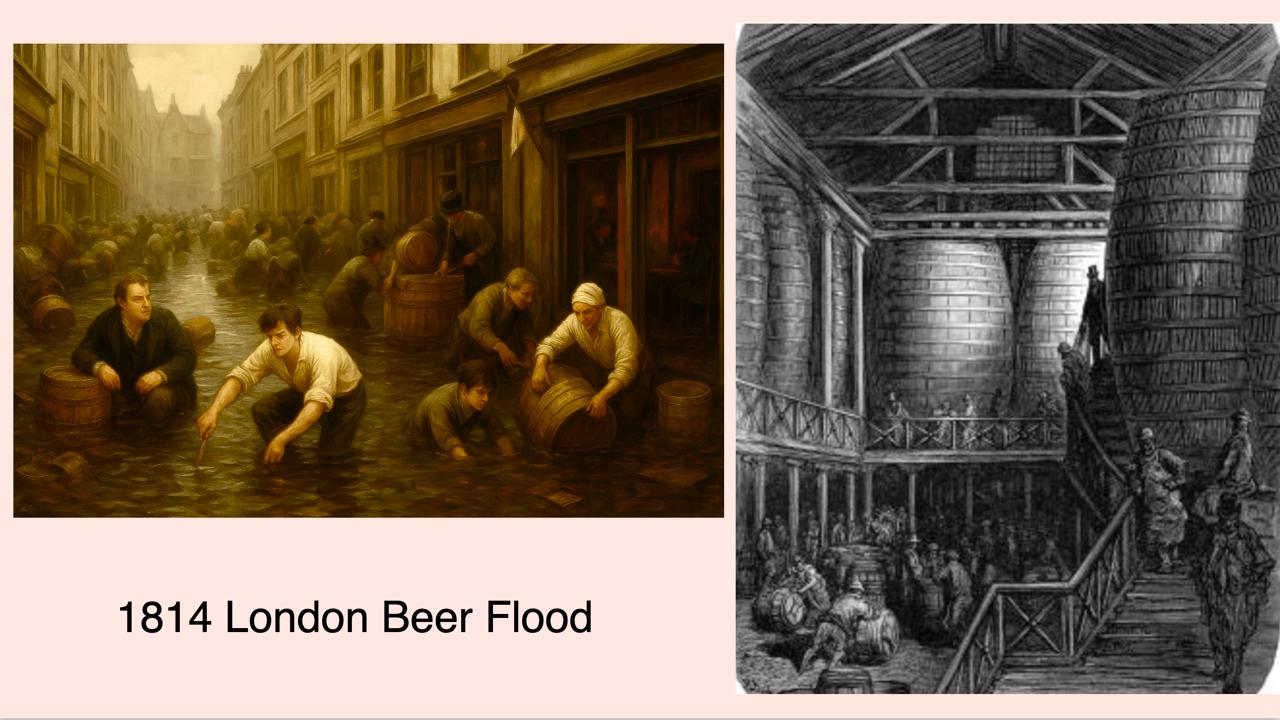ON THIS DAY: 17 October 1814 – Eight people perished in what has become known as the London Beer Flood.
At Meux & Co.’s Horse Shoe Brewery on Tottenham Court Road, a colossal wooden vat containing over 135,000 gallons (610,000 litres) of porter burst. On that fateful afternoon, the culprit was a massive fermentation vat, about 22 feet tall, held together by iron hoops. These vats were so enormous that banquets were sometimes held inside them before being filled.
Porter, the beer inside the vat, is a type of dark beer, made using malted barley, that originated in London around the 1720s. It was hugely popular with working-class people, particularly street and river porters – hence the name.
The rupture’s force caused several other vats to fail in a devastating chain reaction. In total, more than 320,000 gallons (about 1.5 million litres) of beer flooded the surrounding streets.
The torrent blasted through the brewery’s rear wall and poured into the adjacent slum of St Giles Rookery, one of London’s poorest, most densely populated neighbourhoods, notorious for its cramped, deteriorating tenements with basement dwellings.
The wave thundered down New Street and George Street, obliterating two houses. In one, Hannah Banfield (4) was having tea with her mother and was swept away. In the other, an Irish wake was underway. Mourners, including Mary Mulvey (30), her young son Thomas (3), Elizabeth Smith (27), Ann Saville (60), and Catherine Butler (65), were tragically killed.
The flood also demolished part of the Tavistock Arms pub on Great Russell Street, crushing Eleanor Cooper (14) while she scrubbed pots in the pub yard. Meanwhile, Sarah Bates (3) perished in another nearby house as the water filled basements with terrifying speed. Many residents attempted to escape by climbing onto furniture.
The coroner’s inquest concluded that the deaths resulted from ‘casually, accidentally, and by misfortune’, absolving the brewery of legal liability. The brewery itself suffered significant financial loss, around £23,000, but managed to survive by reclaiming about £7,000 in excise duty from Parliament.
The Horse Shoe Brewery remained the biggest producer of porter throughout the 19th century. However, it closed in 1921 and the buildings were demolished the following year. Once the most popular beer in Britain, porter has been overshadowed by stouts, which use unmalted roasted barley for a more bitter flavour. Today porter’s popularity in the UK today is a niche one, appealing mainly to craft beer enthusiasts.

